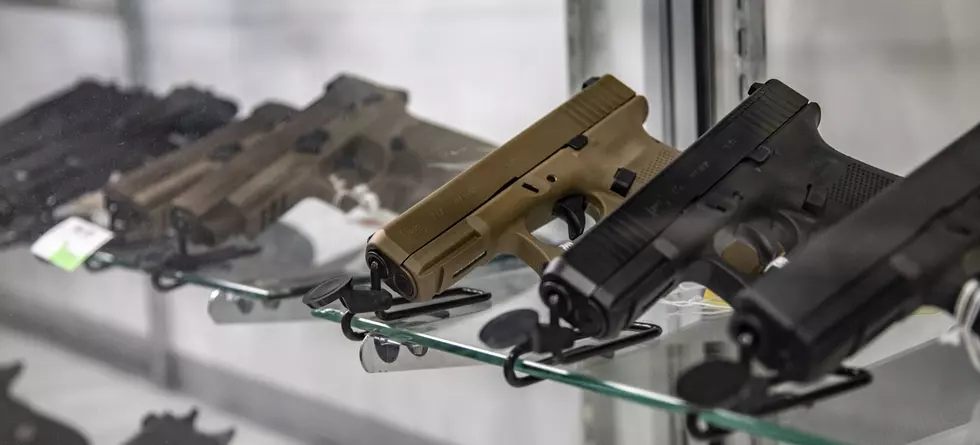
GOP’s sweeping gun reforms leave Missoula city, county officials concerned over safety
By the end of the 2021 Legislative session, nearly anyone in Montana will be authorized to carry a concealed weapon without a permit and take it nearly anywhere they go, be it a bank or a university classroom.
The authority of local governments to declare weapon-free zones in public buildings – once a staple of ensuring public safety and open debate – will also become a thing of the past, and that has elected officials at the local level concerned.
“A majority of my fellow council members are concerned, and I'm certainly concerned,” said Missoula City Council President Bryan von Lossberg. “It has a chilling effect to say the least and it will likely go far beyond that.”
With Republicans now in firm control of the Legislature and the governor's office, the party's first order of business included a sweeping rollback of the state's gun laws.
Last week, Gov. Greg Gianforte signed House Bill 102 into law, representing the largest reform of gun laws in the state. It also made Montana the 18th state to restore constitutional carry, an ideology dating back to 1791 and the ratification of the Second Amendment, when permits were not needed to carry firearms.
Two-hundred and thirty years later, Gianforte offered a brief statement at a bill-signing ceremony. He didn't take questions from reporters.
“Criminals don’t care about safe zones or gun-free zones,” Gianforte said. “Gun control measures don’t prevent criminals from perpetuating violence and other crime. Gun control measures step on the rights of law-abiding citizens.”
The measure now allows concealed firearm possession without a permit in most places in the state, with exceptions including secure law enforcement facilities, federal buildings, courtrooms and schools.
While HB 102 is now law, a second bill – House Bill 436 – would take the measure further, allowing a concealed weapon to be carried in public buildings and stripping local governments of their ability to establish gun-free zones.
That includes city and county public meeting rooms, where elected officials engage in challenging issues that at times upset some constituents.
“You mix anger with a gun and sometimes regretful things happen,” said Missoula County Commissioner Josh Slotnick. “We have to make hard decisions that anger people and that's how it is. It's a bad idea to mix that decision making with the potential that people in the audience have guns.”
Last year, a Missoula man was banned from attending Missoula City Council meetings after making death threats against elected officials and others. He was formally charged and was held on a $100,000 bond.
Members of the council have received other threats in the past, especially when handling contentious issues. The sometimes combative atmosphere has left some members of the public unwilling to attend meetings.
Adding guns to the mix could only exacerbate those concerns.
“We talk a lot about people being able to access their government and feel comfortable and safe in doing so,” said von Lossberg. “We hear from people all the time about matters that are emotional and challenging. Adding this element to the mix – unwise would be the kind of way I would characterize it.”
House Bill 436 does retain the right of courts to restrict concealed firearms. In Missoula, a number of judges both at the municipal and district court level have already signed a court order prohibiting firearms inside the courthouse.
The county is now considering placing a metal detector in the courthouse at the public's expense.
“I'm concerned that a sign on the door will not stop someone if they're in a hurry or busy and under the understanding that they can bring a gun anywhere,” said Commissioner Dave Strohmaier. “It's a bad decision on the part of the Legislature to go down this path.”
While the courts can restrict firearms, the county would not be able do the same in its public meeting room, nor in its administration building. City Hall would be in the same situation, along with City Council chambers.
After past events, the city stationed a police officer at the door of City Council chambers and in the room during public testimony. Under the new laws, the officer could become a permanent fixture.
“This notion that somehow a plethora of weapons, concealed or otherwise, I see no logic in how that makes the entire room safer and that police officer's job easier,” said von Lossberg. “I don't think it's conducive to a safe exchange of ideas between local government and citizens. It's our job to hear matters that are important and challenging to the community, and this is an ideological and bad idea.”
